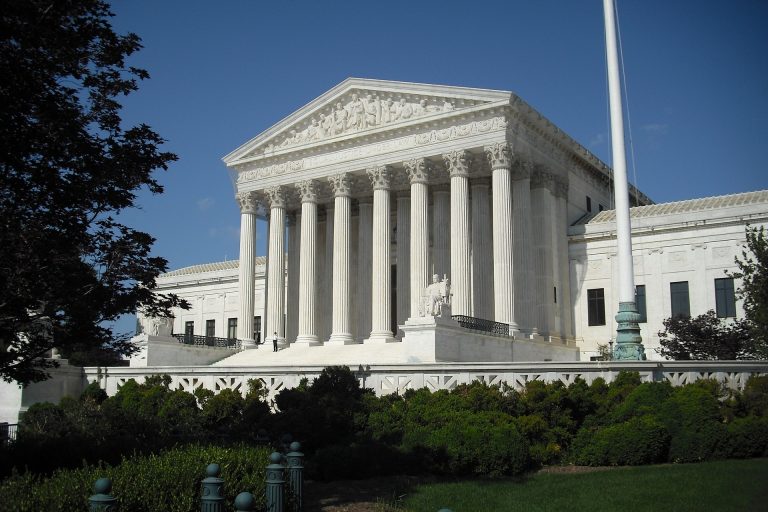In a lawsuit challenging the Affordable Care Act (ACA), also known as Obamacare, from 18 states led by Texas and two individuals, the U.S. Supreme Court upheld the ACA in a 7 to 2 ruling. The hearing covered two lawsuits – Texas v. California and California v. Texas. The ACA was defended by California, 15 other states, the U.S. House of Representatives, and the District of Columbia.
Increased premiums
During his 2008 election campaign, Barack Obama promised to introduce a healthcare plan that would cut down annual insurance premiums by $2,500. After becoming President, Obama pushed forward the ACA, which was eventually passed on March 23, 2010. No Republicans supported the law during its final vote in Congress.
A critical piece of Obamacare was the concept of the “individual mandate,” which required every American to have an insurance policy or pay a penalty. The mandate was deemed necessary to avoid an “insurance death spiral,” in which the cost of premiums could rapidly increase due to changes in the covered population.
However, in reality, insurance premiums increased after the enactment of ACA, according to a study conducted by the Kaiser Family Foundation. In the ten years between 2009 and 2019, the average employer-sponsored family health insurance premium rose by 54 percent from $13,375 to $20,576. Many people were unable to afford the high premiums, and eventually lost their insurance.
In 2017, President Donald Trump signed into law the “Tax Cuts and Jobs Act of 2017 (TCJA),” which canceled the penalty enforced by Obamacare’s individual mandate.
The legal challenge
Success
You are now signed up for our newsletter
Success
Check your email to complete sign up
In February 2018, a group of state attorneys general led by Texas filed a lawsuit with a Texas district court. The lawsuit argued that the ACA was unlawful because the individual mandate outlined in Obamacare was canceled in 2017. Since the mandate was integral to the ACA and could not be severed from the law, the entire law should be discarded.
In December that year, U.S. District Judge Reed O’Connor agreed to strike down the ACA. The case went to the U.S. Court of Appeals for the Fifth Circuit, which in 2019 ruled that the ACA’s individual mandate was unconstitutional.
The case was sent back to the lower court to reevaluate whether any elements of the law could remain, or if it should be entirely discarded. Democrat states led by California then approached the Supreme Court, asking it to reverse the appeals court’s judgment. Texas asked the Supreme Court to instead institute a nationwide repeal of ACA.
In court, Texas Solicitor General Kyle D. Hawkins stated, “It is a naked command to purchase health insurance, and, as such, it falls outside Congress’ enumerated powers… The proper course is to take Congress at its word and declare the mandate unconstitutional and inseverable from the remainder of the ACA,” Hawkins stated.
In its judgment on June 17, the Supreme Court decided to uphold Obamacare, with support from seven of the nine justices. The majority opinion written by Justice Stephen Byer stated that Texas and other plaintiffs of the suit “lack the standing necessary” to question the ACA’s validity.
The opinion said that a plaintiff only has standing if he can allege personal injury “fairly traceable to the defendant’s allegedly unlawful conduct,” and likely to be redressed by the requested relief. “Neither the individual nor the state plaintiffs have shown that the injury they will suffer or have suffered is ‘fairly traceable’ to the ‘allegedly unlawful conduct’ of which they complain.”
Justices Samuel Alito and Neil Gorsuch dissented from the Supreme Court majority opinion. In his dissent, Alito criticized the Supreme Court for pulling off “an improbable rescue” of the ACA, and argued that the plaintiffs in the case do have standing.
“Texas and the other state plaintiffs have standing, and now that the ‘tax’ imposed by the individual mandate is set at $0, the mandate cannot be sustained under the taxing power. As a result, it is clearly unconstitutional, and to the extent that the provisions of the ACA that burden the States are inextricably linked to the individual mandate, they too are unenforceable,” Alito’s dissent stated.
Reception
In a tweet, Obama said the Supreme Court ruling “reaffirms what we have long known to be true: the Affordable Care Act is here to stay.” He asked for the ACA to be strengthened and expanded.
In a June 17 statement, President Joe Biden called the Supreme Court decision a “victory” for 130 million Americans who have pre-existing conditions. “More than 1.2 million Americans signed up for coverage under the law through a special enrollment period I established during this pandemic, which people can still sign up for through August 15th. And I look forward to working with the Congress to build on this law,” Biden said in the statement.
In an interview with Fox News, Republican Senator Josh Hawley said that he was not surprised by the Supreme Court’s decision, since the court had indicated it would “head down this route.” He called the court’s opinion that the states had no standing “a dubious decision,” pointing out that it has allowed standing in similar cases “many, many other times.” The senator said that the immediate focus should be to make health care affordable to most Americans.
Republican Representative Barry Moore from Alabama said in an interview with a radio station that he was “disappointed” by the Supreme Court ruling. He stated that repealing the ACA should now be done through the legislative process.
“I was just telling my staff. They were notifying me the courts told us we didn’t have standing. My comment was, ‘Well, I guess it’s going to be up to the legislative branch of the government to fix this issue’. Obviously, it is going to be an uphill battle the next few years, but if we can get a majority, it is going to be in the crosshairs. As a party, we promised to repeal it. We need to repeal it,” Moore said.















